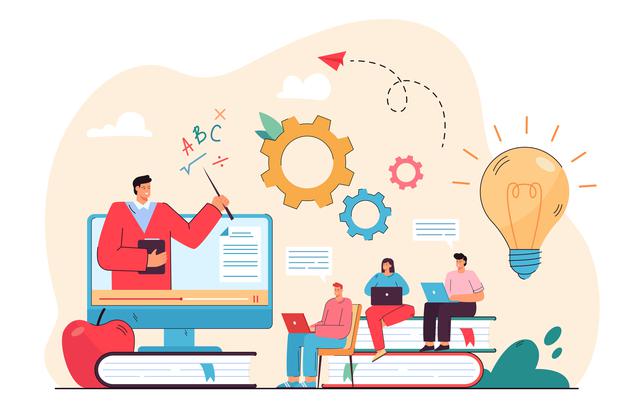Edition: May 20th, 2021
Curated by the Knowledge Team of ICS Career GPS

Excerpts from article by Dr Niranjan Hiranandani, published in Business World Education
Year 2020 didn’t just give the world a life-altering pandemic, but also offbeat ways of learning and adapting to the unprecedented times ahead.
In fact, the education system underwent a revolution, creating a paradigm shift for the learners of the coming generations.
In the current, fast-paced and continually developing world, there is a pressing need for a knowledge-based society. In such an environment, it is the duty of every educational institution to ensure that the youth receive knowledge that is updated and in accordance with the evolutions in the industry.
Today’s generation needs to be guided on:
- How to pursue the continual development of new knowledge
- The application of this knowledge to navigate the world
Listed here are the pedagogies that should be adopted in this novel era of education, to make our students future-ready:
1. A guide to streamline information
- Teachers and institutions play extremely significant roles in preparing the students for all kinds of challenges of the real world. Teachers should, therefore, start teaching students how to analyse a particular subject that they intend to skill themselves in.
- The outline of the entire procedure, based on the analysis, should be put down. After this, the students must identify the focus areas. Fragmentation of the procedure and prioritisation should be taught so that the end result is achieved as desired.
- The evaluation processes should focus on if the students have understood how to apply the knowledge that they have received in a dynamic ever-changing environment.
2. Operational practices / Application of knowledge
- While theoretical learning is important for students to refer to, it is the application of knowledge that makes all the difference. It is vital for educators and institutions to provide a platform to students for applying their knowledge and thoroughly practising it to assess how it can lead to future opportunities.
- This also stimulates students to hone their extra-curricular skills, think critically, use information appropriately, and learn how to deal with scenarios individually and as a team.
- During the operational practices, some students can also get inspired and set in motion a disruptive business idea!
3. ‘Phygital’ sustenance
- Digital education has seen acceptance across the globe, yet there are fields that require a physical environment in the process of teaching and learning. So, the authorities need to create a roadmap to sustain those subjects without giving up on the physical aspect.
- A blended approach of physical and digital is the key to sustenance in skilling the future workforce whilst ensuring flexibility in learning.
- In the coming days, it should be possible for students to learn anytime and anywhere. This is possible through elements like recorded lectures and creating an e-library for the academic year. A collaborative approach via webinars, live lectures with industry leaders and renowned organisations, etc. will go a long way.
This three-fold approach is strategic for varsities to stay relevant in this new era of education. These emerging new pedagogies will have a greater impact on both teaching practices and the students’ learnings, while incorporating the cross-curriculum approach.
(Disclaimer: The opinions expressed in the article mentioned above are those of the author(s). They do not purport to reflect the opinions or views of ICS Career GPS or its staff.)
Like this post? For more such helpful articles, click on the button below and subscribe FREE to our blog.




